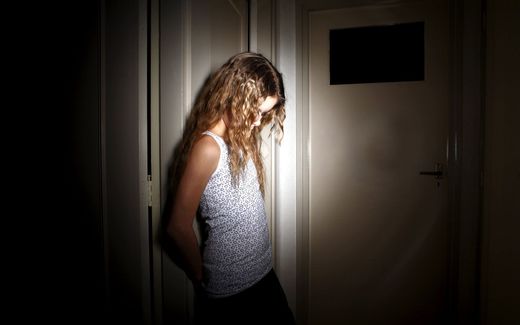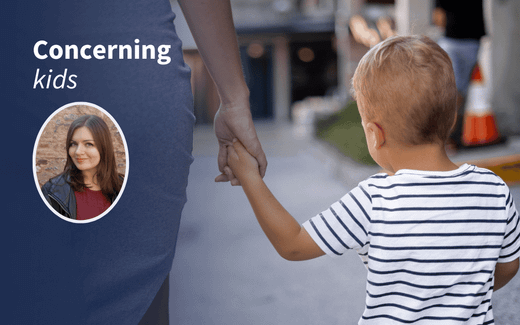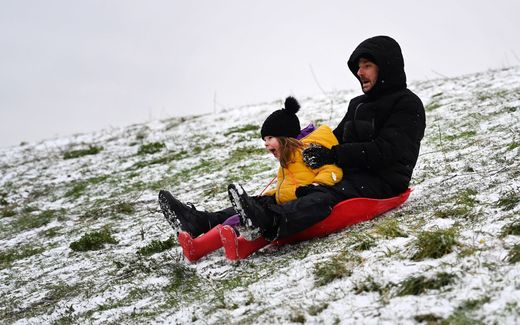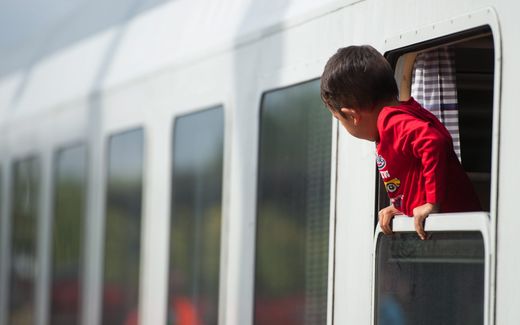Guest commentary: Romania's children's rights put you in a dilemma
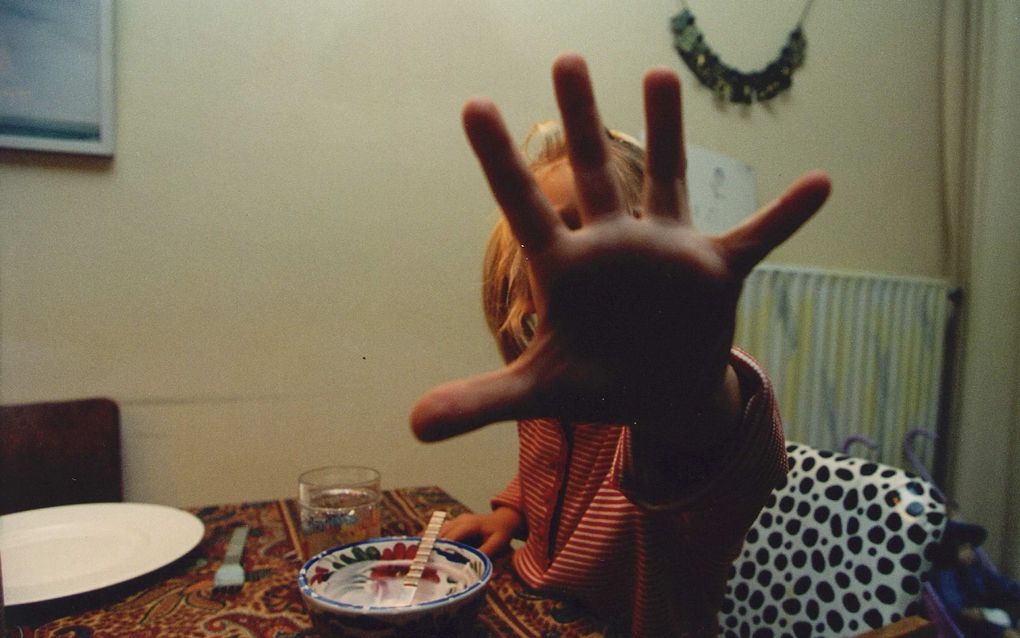
Children are subject to much violence. But in some cases, they can get violent themselves, too. Photo ANP, Frans Vanderlinde
Eastern Europe
In Romania, parents can still slap and spank their children. Of course, within reasonable limits. But what when children themselves get violent, asks Marius Bagu.
Stay up to date with Christian news in Europe? Sign up for CNE's newsletter.
It is one of the most atrocious stories I ever encountered. The drunken father of the 11-year-old student assaulted the girl, her mother and her siblings with a whip. And this occurred repeatedly.
It happened three years ago while I was teaching in a rural area 20 kilometres from my hometown. The situation called for the involvement of the school principal, a municipal social worker, and law enforcement officers. Although the family disbanded, the father’s separation from the girl, her mother, and her siblings solved the problem.
In circumstances involving domestic violence perpetrated by parents, relatives, or strangers, Child Protection Laws are both justified and essential. Children must be safeguarded from such cruelty and malevolence.
Regret
But what happens when a child is the perpetrator of violence? Last April, a 15-year-old student violently assaulted his head teacher. The case has recently garnered attention once more. Before the sentencing, he astonished the judge by declaring, “I do not regret any of my actions!”
The judge asserted that the imposed sanction, merely six months of non-custodial educational measures, was inadequate for a case of this significance.
During the school year, especially in April, the student repeatedly disrupted the classroom, leaving the head teacher no other option than to contact the police. Upon the police’s arrival, their sole action was to levy fines against the student’s mother because that was all they could do.
Rather than admonishing her son, the mother directed her ire at the head teacher despite her son being the source of the problems at school. While the mother encouraged him, the student became aggressive and violently attacked the head teacher, as other students recorded the entire incident on video.
Given the nature of the offence, the court acknowledged the leniency of the 15-year-old student’s penalty and noted that there is no legal basis for a harsher conviction. The law provides no flexibility for a more proportional punishment, given that the student violently assaulted his head teacher.
As the judge pointed out, child protection laws have surpassed their boundaries.
Utmost care
This is not the first time such incidents have occurred frequently in Romania. Besides, I am acquainted with law enforcement officers who express dissatisfaction regarding this matter. Individuals who work with children, including educators, social workers, or law enforcement officers, must handle them with utmost care, even when the children are the evildoers.
In my opinion, Romania, like the West generally, has shifted toward extremism when it comes to the issue at hand. Historically, child abuse went unprosecuted, allowing parents, teachers, social workers, or police officers to evade accountability for the mistreatment of minors. However, contemporary standards safeguard children from any punitive measures, regardless of their culpability in wrongdoing.
In Romania, parents can still instil discipline in their children and slap them on the wrist or even spank them within reasonable limits for harming others or for other wrongdoings. Conversely, in countries such as the Netherlands, Germany, and Sweden, such actions are illegal, granting the state the authority to remove children from their parents.
Arson attacks
According to Romanian Child Protection Laws, those under the age of 14 are not criminally liable, and those between the ages of 14 and 16 are legally liable only if they acted with discernment. But even if they acted with discernment, as the judge pointed out, there is no proportional punitive response from a legal point of view.
That is the core issue: Child Protection Laws in Romania protect children under 14 years of age, and even 14 to 16 years of age, against any reasonable punishment to such a degree that they can get away with evildoing, even if they disturb public order, cause property damage, commit arson attacks, or engage in assault.
This poses a significant problem for me because it contradicts one of the most fundamental principles presented by the esteemed apostle in Romans chapter 13. God has established the state to reward those who do good and punish evildoers. These constitute the two principles of justice.
God has entrusted the Romanian authorities with a paramount responsibility that they are neglecting. The Ministry of Education, the Ministry of Justice, and the Ministry of Families, Youth, and Equal Opportunities are all failing to fulfil their responsibilities.
Regardless of the children’s reprehensible actions, the legal system is unable to hold evildoers accountable, especially if they are children. And this contradicts the principles of justice.
Expulsion
As I am a teacher, I can attest to this from personal experience. I have written multiple letters to the Ministry of Education about this but to little avail. For the first time in modernity, the Ministry of Education has allowed for the suspension and even expulsion of students. However, implementing such measures is laborious and almost impossible in certain instances. And that is problematic.
At this point, I truly hope I won’t be misunderstood. Regardless of the topic’s well-meaning and contemplative nature, there will be people who will invariably enquire, “Do you wish to return to the past?” And my response is unequivocal: “No.” Not in the slightest.
Gravity
I detest the idea of a teacher, social worker, or police officer unfairly punishing a child. However, based on the gravity of the offence, and the complaints and the testimony of the witnesses, there should be a reasonable punishment against the evildoer, whether child or adult.
All individuals are and should remain presumed innocent until proven guilty.
In my ideal world, there would be a perfect balance between the dignity of children and the authority of adults. Adults would treat children with kindness and children would respect the authority of the adults. Anyone who transgresses this balance would be punished, be it an adult whose authority has become tyrannical, or a child whose behaviour is unruly.
Those who accuse me of having a radical point of view, I politely ask: What about the victims? What about the elderly who have endured violent attacks by children? What about women who have experienced sexual assault at the hands of children? What about children who have inflicted fatal injuries on their peers? Nothing? The press has reported on such cases – they are a reality we must face.
Minors
This perfectly illustrates the problem with the Child Protection Laws in Romania. Penalties are excessively lenient, even in cases involving a malevolent child. Despite the evidence, the law prohibits proportional punishment for minors. Their parents may face fines for their transgressions, yet this appears insufficient, as evidenced by the case involving the mother of the 15-year-old student.
In certain respects, punishing parents for their children’s actions is justifiable. However, the child should face prosecution and appropriate punishment for their transgressions once they reach a certain threshold, depending on the severity of the offence.
Although Child Protection Laws aim to prevent the abuse and mistreatment of children by providing a framework for their well-being, ultimately, their overstep undermines their intended purpose. When a child under 14 years of age fatally assaults another child, the legal system’s response is inadequate, presenting a dilemma that requires future resolution.
Related Articles


